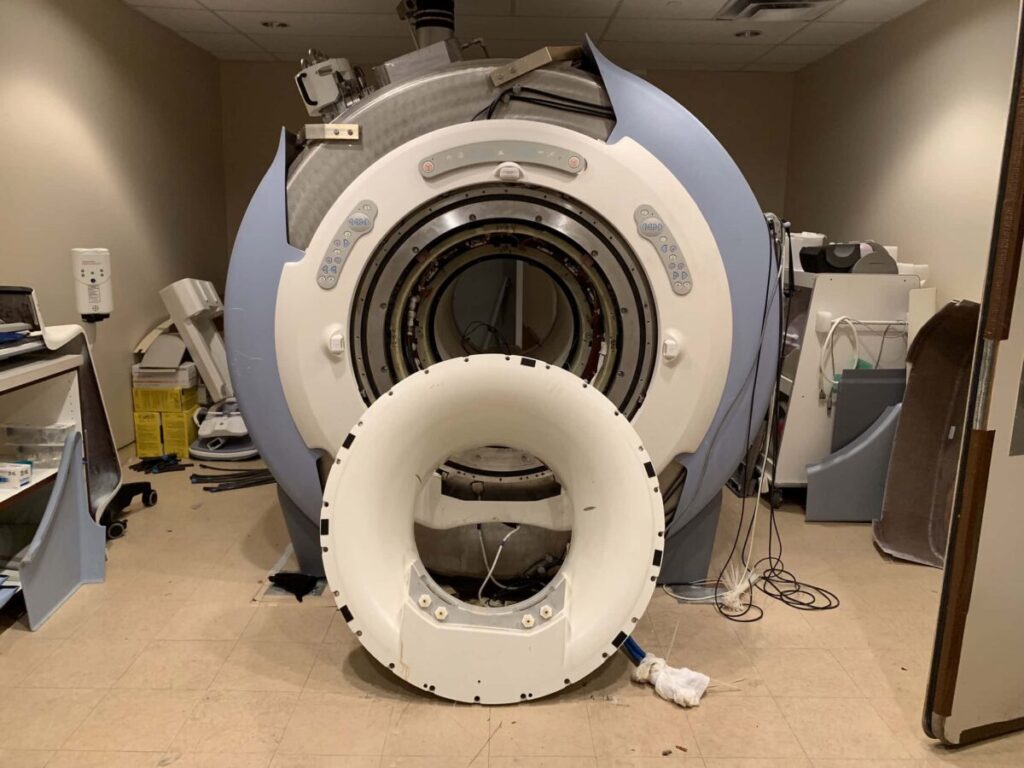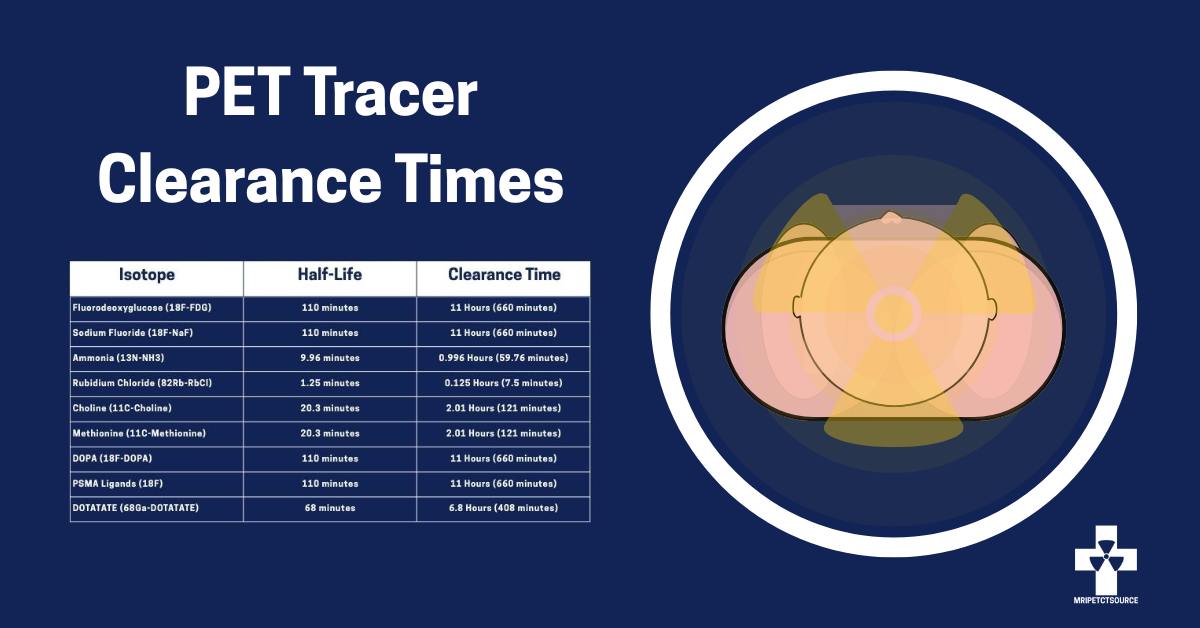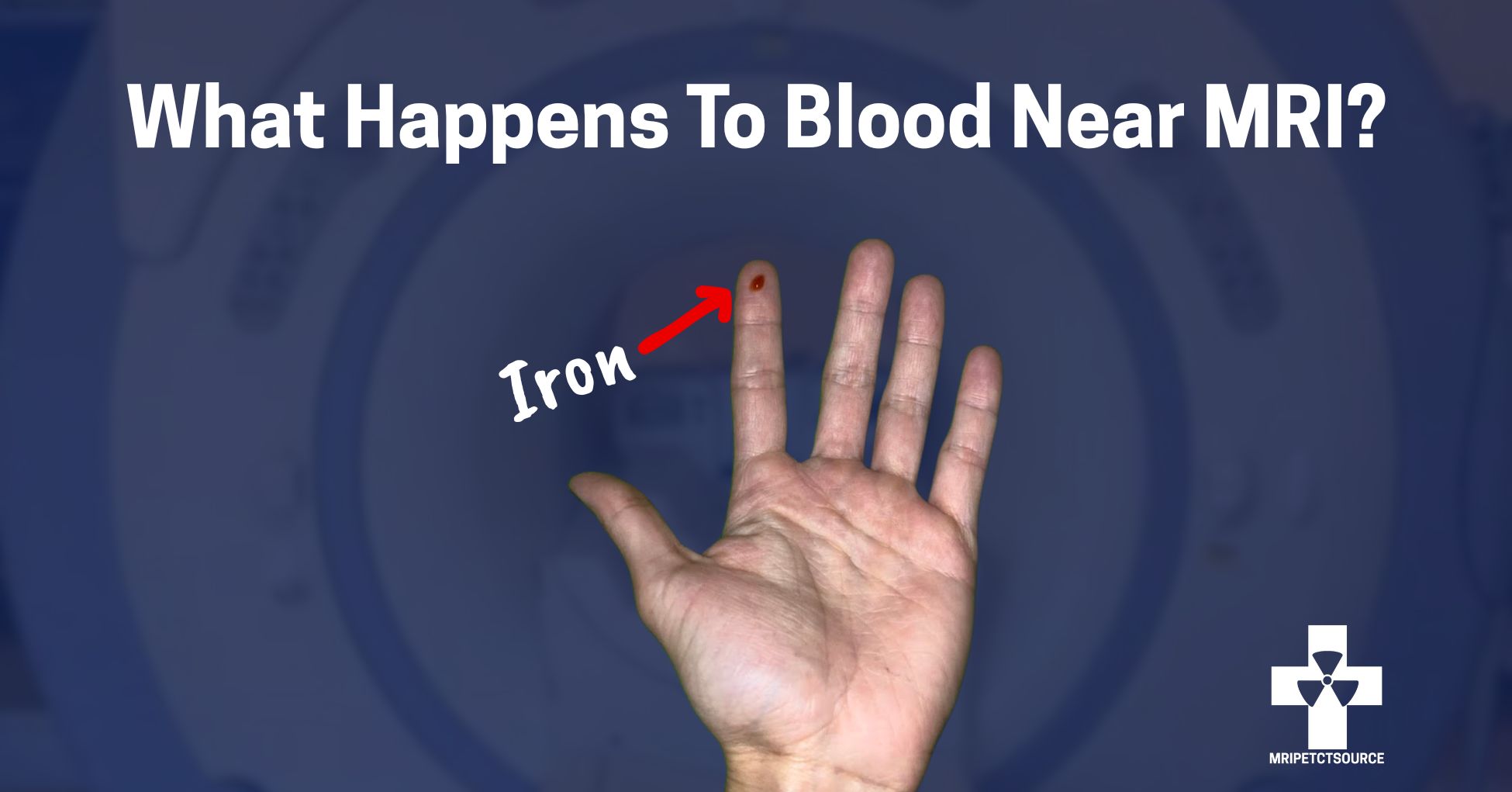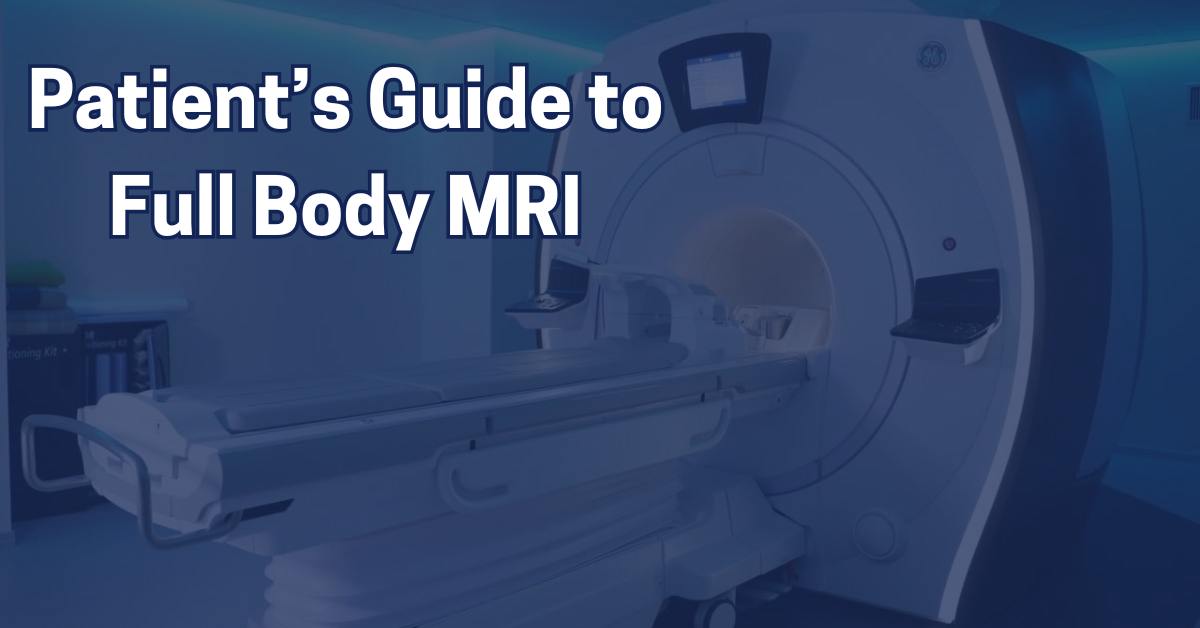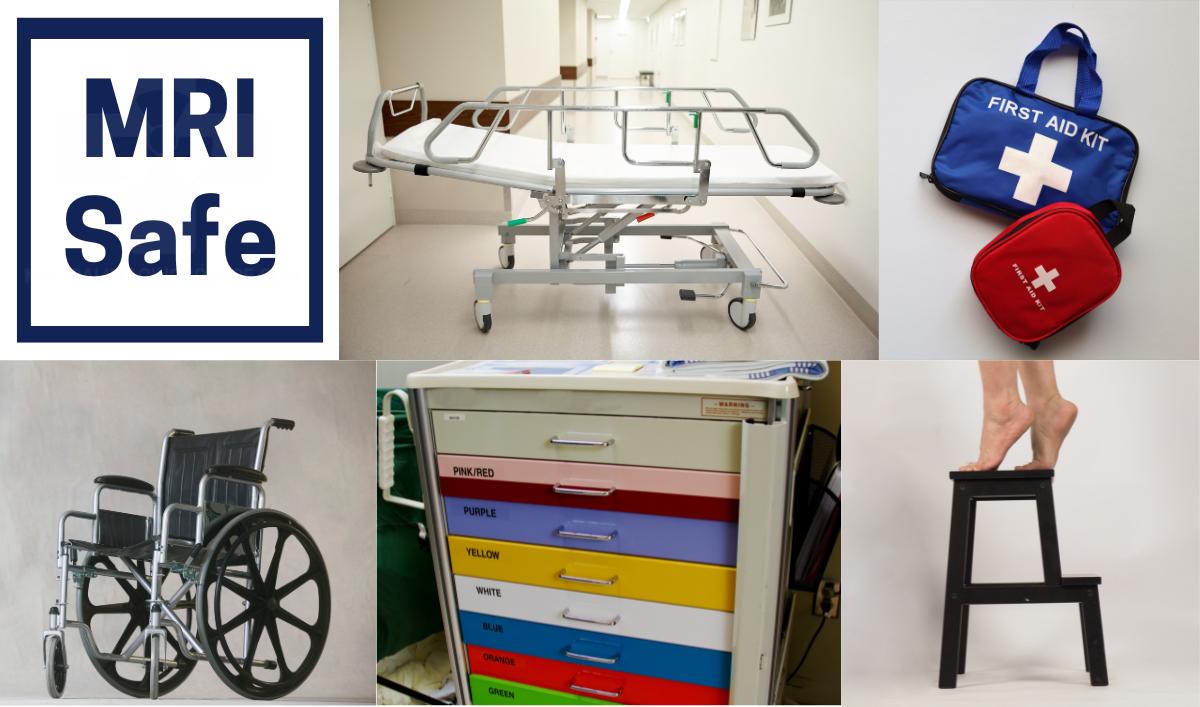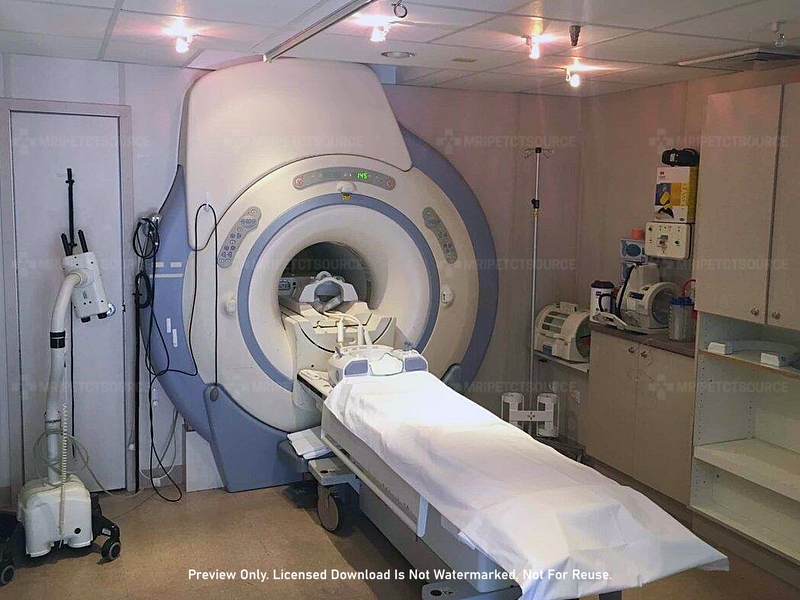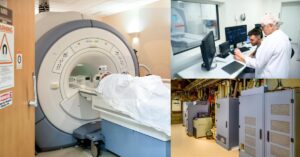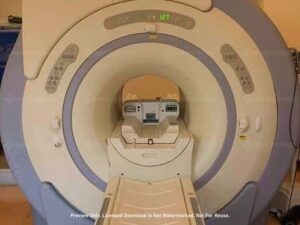The MRI installation process requires meticulous planning, coordination, and expertise to ensure optimal performance and patient safety.
MRI Installation Process
In this article, we detail the intricacies of MRI scanner installations, providing a comprehensive outline of the key steps and considerations involved in the process. From pre-installation preparations to MRI applications training, we will explore the essential aspects of MRI scanner installations.
MRI Installation Requirements
The first crucial step in the MRI scanner installation process is evaluating site layout. Several factors must be considered, including space requirements, electrical considerations, and environmental conditions. The site must have adequate space to accommodate the MRI scanner, as well as clearances for safe access and egress for patients and staff.
Click here to see dimensions and weight information on our MRI magnet type page.
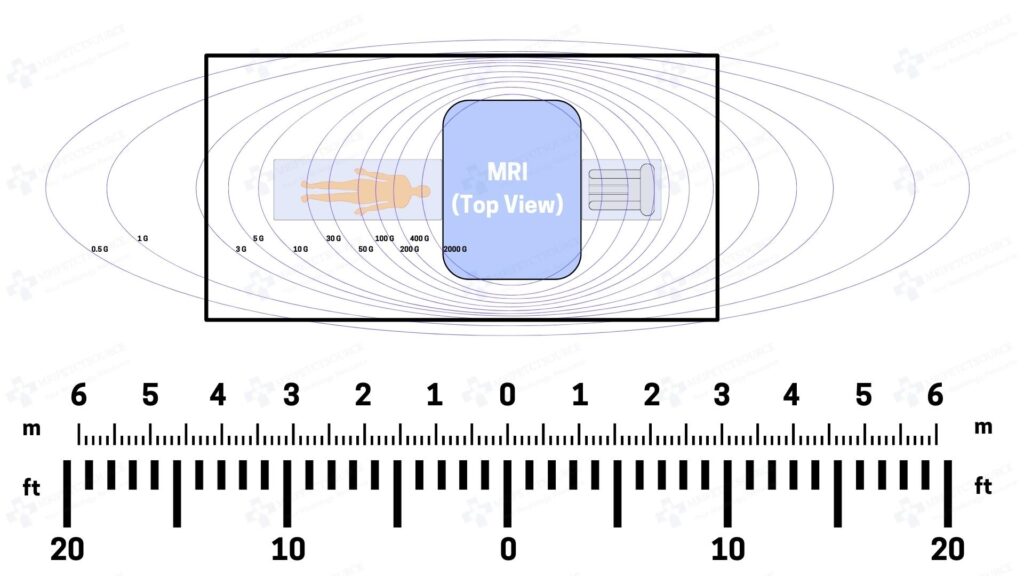
The electrical system must meet the specific power requirements of the MRI scanner, including voltage, current, and grounding. Environmental conditions, such as temperature and humidity, must be within the manufacturer’s specifications for optimal scanner performance.
Coordination with facility engineers, architects, and other stakeholders is also critical during the pre-installation phase. Collaborating with these professionals can ensure that they properly prepare the site and make necessary modifications to meet the installation requirements.
Obtaining the necessary permits and approvals from local authorities is also essential to comply with regulations and ensure a smooth installation process.
During this phase, it is crucial to carefully consider budgeting and planning for installation costs, encompassing equipment, labor, and materials, to prevent unexpected expenses later in the process.
Radiofrequency (RF) shielding and magnetic shielding are required before MRI installation begins. The shielding contains the scanner’s RF and magnetic fields, preventing interference with other equipment and ensuring patient and staff safety.
MRI Scanner Removal and Installation
Once the site is prepared, the actual MRI scanner installation process can begin. This process typically involves several key steps, starting with the delivery and positioning of the MRI scanner.
MRI scanners are large and heavy equipment that requires specialized handling and transportation. To safely position the scanner within the designated room, you may need to employ rigging and hoisting methods. During this step, take proper care to prevent damage to the scanner or the surrounding environment.
After positioning the MRI scanner, the next crucial step is to connect the electrical, cooling, and other systems. This includes:
- Connecting the scanner to the appropriate power source
- Ensuring proper grounding and electrical connections
- Finally, setting up the cooling and ventilation systems to maintain the required environmental conditions.
Calibration and testing of the MRI scanner are critical to ensure proper performance. This includes verifying that the scanner is calibrated according to the manufacturer’s specifications.
Additionally, comprehensive testing is required to confirm that the scanner is functioning accurately and consistently. This may involve conducting phantom tests, image quality assessments, and other performance tests to ensure that the scanner is producing high-quality images and operating within the specified parameters.
Ensuring Safety and Compliance
Safety is of utmost importance during MRI scanner installations. MRI scanners generate powerful magnetic fields that can pose risks to patients, staff, and nearby objects if not properly contained.
Compliance with local, national, and international regulations and standards is crucial to ensure the safe operation of the MRI scanner. This includes adherence to guidelines such as
- International Electrotechnical Commission (IEC) 60601 standard for medical electrical equipment
- American College of Radiology (ACR) guidelines for MRI safety
- Any other relevant local regulations and guidelines.
Furthermore, compliance with these standards helps to minimize the risks associated with MRI installations and ensure the safety of patients, staff, and the surrounding environment.
Recommended: MRI Safety Zones Explained
Troubleshooting and Problem Resolution
Despite careful planning and preparation, issues may arise during MRI scanner installations that require troubleshooting and problem resolution. It is essential to have a contingency plan in place to address any unexpected challenges that may arise. Specifically, this may include technical issues with the scanner, equipment malfunctions, or unforeseen site modifications. Prompt and efficient problem resolution is crucial to avoid delays in the installation process and ensure that the scanner is up and running as quickly as possible.
Troubleshooting may involve working closely with the MRI scanner manufacturer’s technical support team or engaging other experts in the field.
Proper documentation and record-keeping of issues, resolutions, and modifications made during the installation process are essential for future reference and potential warranty claims.
Effective communication and coordination among all stakeholders, including facility engineers, architects, construction crew, and electrical team, are critical during this phase to ensure that issues are addressed promptly and effectively.
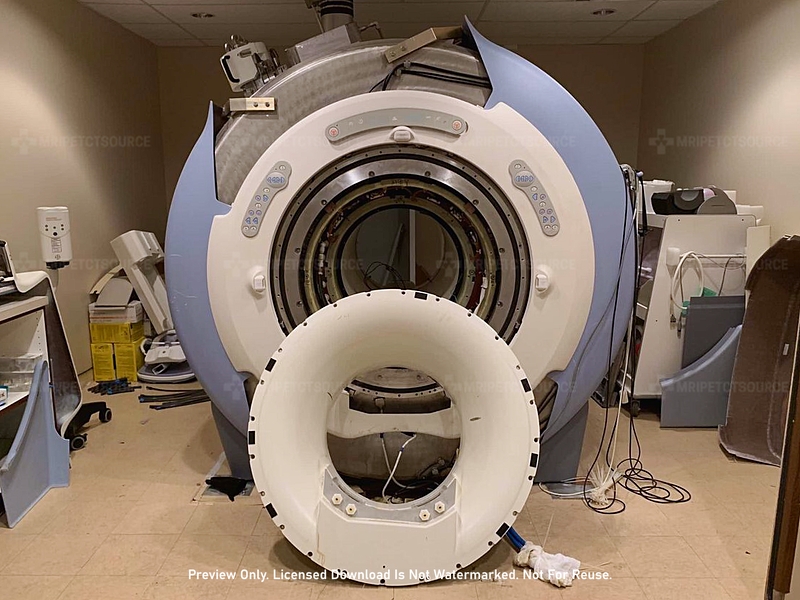
Post MRI Installation Testing and Validation
Post-installation testing validates MRI scanner performance. It ensures the scanner operates within specifications, producing accurate and reliable images. It involves comprehensive performance tests and adherence to manufacturer’s guidelines. Proper testing guarantees optimal functionality, maximizing the benefits of the MRI scanner for patient care.
Testing may involve phantom tests, image quality assessments, and other performance evaluations to validate the scanner’s performance.
Proper documentation and record-keeping of post-installation testing and validation results are essential for future reference and for meeting regulatory requirements. Any issues or discrepancies identified during testing should be promptly addressed to ensure that the scanner is performing at its best. Generally speaking, this may involve making necessary adjustments, calibrations, or modifications to ensure optimal performance and image quality.
Ongoing Maintenance and Support
Regular maintenance and support are critical to ensure the long-term performance and reliability of the MRI scanner. This includes routine inspections, calibrations, and preventive maintenance activities as recommended by the manufacturer. Proper maintenance helps to identify and address any potential issues before they become critical, minimizing downtime and ensuring uninterrupted operation of the scanner.
It is important to work closely with the MRI service team. Ensure that you perform MRI maintenance according to the manufacturer’s specifications. This may include regular checks and calibrations of the MRI scanner magnets, RF coils, gradients, and other components to ensure optimal performance.
Additionally, service contracts with your MRI service provider can provide prompt troubleshooting and problem resolution in case of any issues that may arise during the scanner’s operation.
Conclusion
In conclusion, MRI scanner installations require meticulous planning, coordination, and expertise to ensure safe and reliable operation.
Every step of the installation process is critical for optimal MRI scanner performance. Compliance, effective communication, troubleshooting, and maintenance are essential for success. Regular support from the manufacturer or authorized service provider ensures long-term reliability.
Investing in a professional installation service and ongoing maintenance can help healthcare facilities maximize the benefits of their MRI scanner.
MRI Installation Service
Maximize the benefits of your MRI scanner with our expert installation service. Notably, our team of imaging experts ensures a smooth and coordinated installation process. Moreover, we comply with all regulatory standards to resolve issues promptly, conduct thorough post-installation testing, and provide ongoing maintenance and support to ensure optimal performance and reliability of your scanner.
- Pre-Installation planning with architect and construction consultants.
- Magnet Removal and Installation
- MRI Applications Training
- Service Plans Ranging From Hourly-Billed, PM Only, and Service Contracts.

Request A Quote
Our imaging experts take the stress out of the lease and sales process. Leave your contact information to have our team contact you.
BY SUBMITTING YOUR INFORMATION, YOU’RE GIVING US PERMISSION TO CONTACT YOU BY EMAIL OR PHONE. YOU MAY UNSUBSCRIBE AT ANY TIME.

Related Resources
Related resources
Quick Navigation Links
Recommended Articles
Helpful Resources
The information provided by MRIPETCTSOURCE (“we,” “us,” or “our”) on https://www.medicalimagingsource.com (the “Site”) is for general informational purposes only. All information on the Site is provided in good faith, however we make no representation or warranty of any kind, express or implied, regarding the accuracy, adequacy, validity, reliability, availability, or completeness of any information on the Site. UNDER NO CIRCUMSTANCE SHALL WE HAVE ANY LABILITY TO YOU FOR ANY LOSS OR DAMAGE OF ANY KIND INCURRED AS A RESULT OF THE USE OF THE SITE OR RELIANCE ON ANY INFORMATION PROVIDED ON THE SITE. YOUR USE OF THE SITE AND YOUR RELIANCE ON ANY INFORMATION ON THE SITE IS SOLELY AT YOUR OWN RISK.

